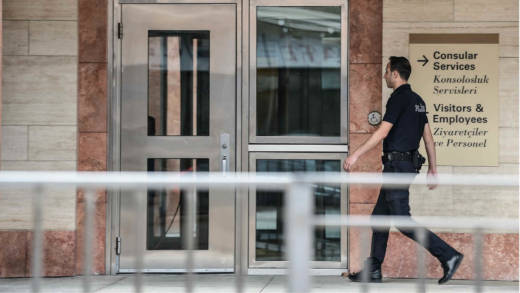The U.S. and Turkey have mutually suspended visa services, effectively blocking travel between the two countries. The suspensions come after a U.S. consulate employee was arrested in Istanbul last week. Council on Foreign Relations Senior Fellow Steven Cook joins Forum for an update on U.S.-Turkey relations and to discuss his new book “False Dawn,” about why he thinks the Middle East uprisings from 2010-2013 failed, and why violence and autocracy continue in the region.
Steven Cook, senior fellow for Middle Eastern studies, Council on Foreign Relations; author, “False Dawn: Protest, Democracy, and Violence in the New Middle East”
